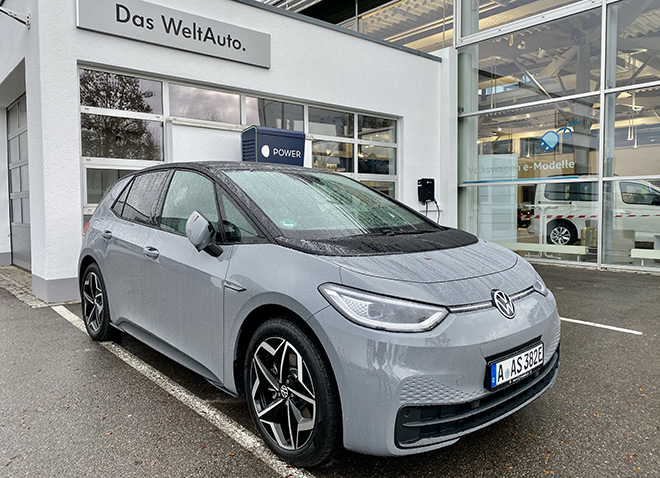The Volkswagen Group is by far the most charged of the legacy automakers—it’s making massive investments in electrification, converting entire factories to EV production, and rolling out fast charging networks across the US and Europe. Chairman Herbert Diess recently won an important vote of confidence from the company’s board, which agreed to back his ambitious electrification plans.
However, even VW is having trouble clearing one of the major roadblocks to EV adoption: its independent dealers. According to a new study by Greenpeace, German VW dealers are failing to recommend the brand’s flagship EV, the ID.3, to car buyers. The study found that dealerships lack the training and incentives they need to sell EVs, and that sales personnel are following a pattern that’s all too familiar, actively steering customers to legacy gas or diesel models.
The Greenpeace study included 50 “secret shopper” visits to a selection of the 865 German VW dealerships that carry the ID.3. All the shoppers described their driving profiles in terms that should make them likely candidates to buy EVs. Half the secret shoppers said they were trying to decide between the ID.3 and a gas-powered Golf.
Only 8 of the 50 dealers visited (16%) recommended the ID.3, and the percentage was even lower (4%) for customers who didn’t specifically say that they were considering the ID.3.
The shoppers also asked multiple questions about EVs, concerning charging infrastructure, fire hazards and the environmental benefits of driving electric. In nearly half (48%) of cases, dealers gave wrong answers, or were unable to give any answer at all. Several dealers volunteered various tired myths about EVs in order to discourage shoppers from buying them.
In every secret shopper conversation, EVs were discussed, and yet in 84% of them the dealer did not recommend the ID.3, a car that VW is supposedly pushing.
VW is not unaware of the dealership bottleneck, which EV media and advocacy groups have been reporting on for years. The automaker has developed a new “agency model” for its new ID family of EVs, under which customers will place their orders directly with Volkswagen, and a local dealer will provide test drives, finalize transactions, and deliver the vehicles. The company also says it has invested “a seven-figure sum” in dealer training. The dismal results of the study show that the training isn’t sufficient, and the new agency model doesn’t seem to be working as intended.
According to the study, dealers get a higher margin on sales of ICE vehicles, and VW has excluded its EVs from certain price promotions. Greenpeace calls on VW to give its dealers more incentives to sell EVs, and to improve its EV training. The organization also says that automakers and governments need to accelerate plans to end the sale and development of legacy vehicles, and end the current compliance mentality of doing just enough to meet EU fleet emissions requirements.
Source: Greenpeace via Electrek
Image: Frank Gärtner – stock.adobe.com


















































































